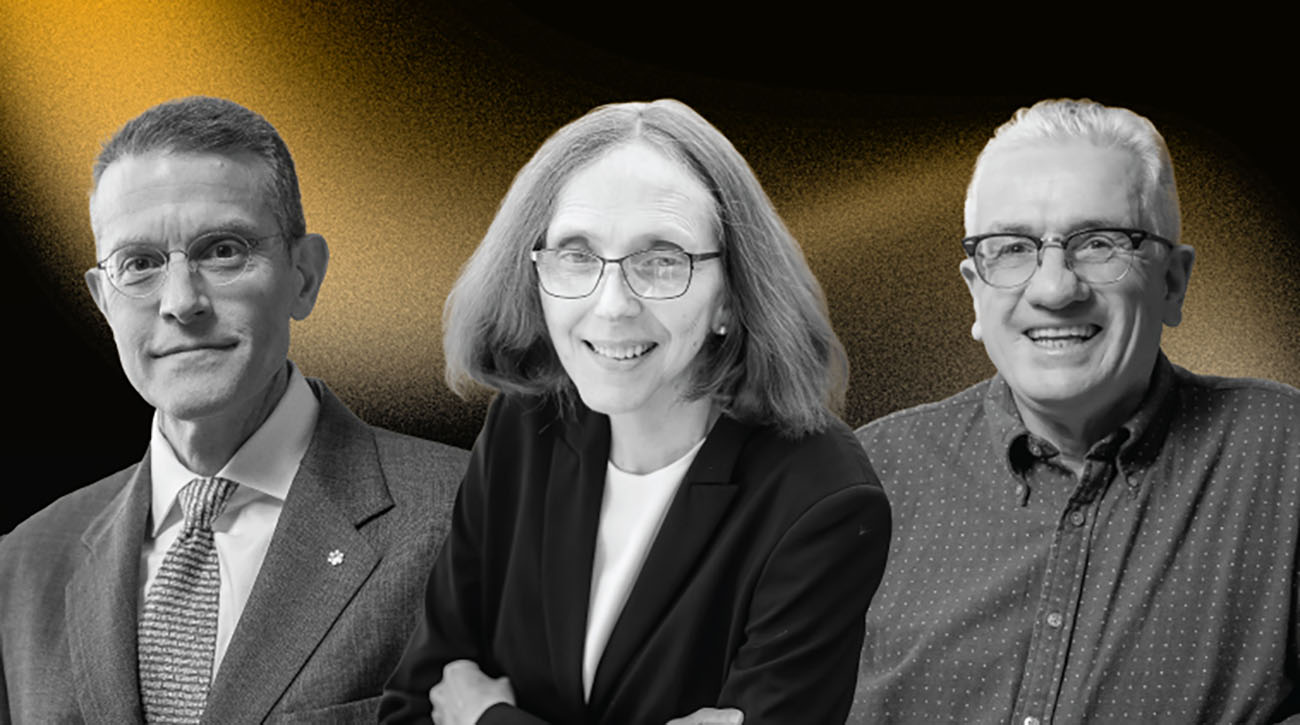
- This event has passed.
Challenges, changes, and research: Insights from UBC’s University Killam Professors
November 12, 2025 @ 5:30 pm - 6:45 pm
Free
In this time of global uncertainty and unrest, the role of research is more crucial than ever. Meet UBC’s three newest University Killam Professors—recipients of the highest honour UBC can confer on faculty members—as they explore the local and worldwide impact of their innovative research in biological, socio-political, and legal systems. Attend this illuminating session to discover how their research is both being shaped by, and could help respond to, the shifting global landscape.
This UBC Dialogues event is presented by alumni UBC and the Office of the Vice-President, Research & Innovation.
Speakers
Prof. Isabel Grant — Peter A. Allard School of Law, UBC
Prof. Marco Marra — Department of Medical Genetics, Faculty of Medicine & Michael Smith Laboratories, UBC
Prof. Jamie Peck — Department of Geography, Faculty of Arts, UBC
Moderator
Prof. Gail Murphy —Vice-President, Research & Innovation, UBC
Wednesday, November 12, 2025
5:30pm–6:45pm PT
Online: Open to everyone. Registration is required.
